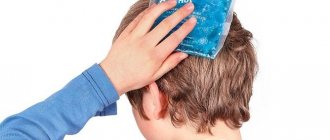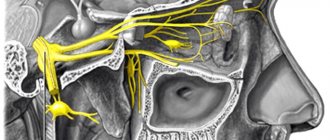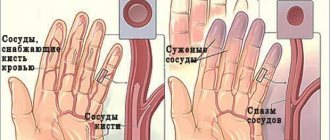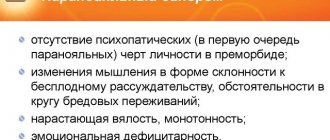As often as possible, patients describe tinnitus at a specialist’s appointment: the crackling of a grasshopper, ringing, squeaking, friction of tires on asphalt, the sound of the ocean, the fluttering of butterfly wings, the howl of a siren. Is it possible to unambiguously answer the question, what remedy will help with tinnitus? Of course not.
.Photo: pixabay.com
As well as making an unambiguous diagnosis. After all, tinnitus is not a disease, but a symptom. And the causes of noise can be very different: from stress and depression to diabetes and tumors of the auditory nerve.
general information
Intermittent noise in the right ear worries many people. For doctors, this is also not an entirely simple problem. After all, it is important to accurately establish the cause.
Noise in the right ear without pain is usually associated with natural processes; it occurs from irritation of the hairs that are localized inside. In a calm state, they do not manifest themselves in any way, but with irritation they move chaotically, which leads to noise.
Noise that appears in absolute silence is physiological. It is usually caught due to the movement of blood through the small vessels of the inner ear. It is not possible to determine the nature of these noises based on symptoms alone. Physiological noise usually occurs in people over 40 years of age.
Pathologies
Noise in the right ear without pain appears not only due to the condition of the hearing aid. Another symptom appears when:
- acute otitis;
- unstable blood pressure;
- vegetative-vascular dystonia;
- osteochondrosis of the cervical spine;
- vascular atherosclerosis;
- hearing loss;
- Meniere's disease;
- consequences of traumatic brain injury;
- intoxication;
- oncology.
Diseases of the hearing aid rarely cause noise or ringing in the ear. To prescribe effective treatment, the doctor must determine the cause.
Vascular dystonia – dizziness, noise in the head and ears.
Vascular dystonia (vegetative-vascular dystonia, neurocirculatory dystonia, somatoform dysfunction of the autonomic nervous system) can cause dizziness. The presence of vascular dystonia indicates errors in the functioning of the autonomic nervous system - the main regulator of the activity of internal organs, blood vessels and the constancy of the internal environment of the body. Dizziness with vascular dystonia is caused by spasm of cerebral vessels, a drop or increase in blood pressure, an excess or deficiency of certain substances in the blood, for example, adrenaline or glucose.
Why does it happen?
The causes of noise in the right ear may be related to:
- Right-sided otitis. The accumulation of secretions in the middle ear puts pressure on the septum, which manifests itself in the form of noise.
- Acute tubo-otitis. The manifestation of this disease is not only inflammation of the eardrum, but also inflammation of the mucous membrane of the Eustachian tube. In addition to noise, severe pain occurs, which is accompanied by congestion.
- Meniere's disease. The symptoms and treatment of this disease are interrelated. Due to the accumulation of fluid in the inner ear, compression of the arteries and poor circulation occurs. Dizziness appears and there is a risk of hearing loss. Depending on the symptoms of Meniere's disease, treatment should be appropriate.
- Intoxication caused by uncontrolled use of antibiotics. There is noise in the right ear without pain.
- Tachycardia and other cardiovascular diseases that lead to discomfort in the ears.
- Benign or malignant formations that lead to the appearance of these sound effects.
- Pathologies in the nervous system, which leads to discomfort in the form of noises of various types.
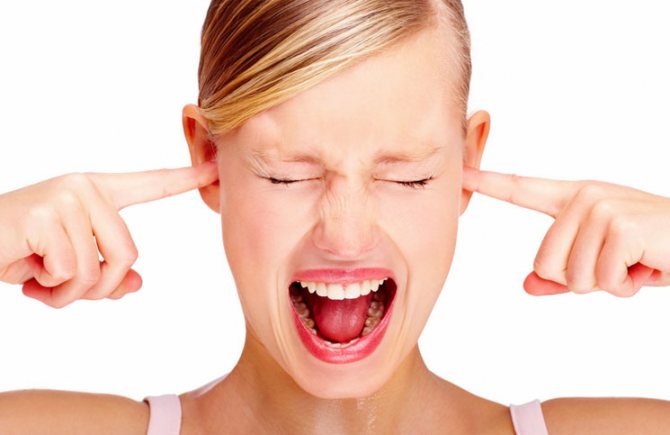
In addition to pathologies, hearing loss and noise in the right ear can occur from wax plugs in the ear canal, penetration of a foreign object, or head trauma. Fatigue and nervous feelings, drinking large quantities of alcohol, strong tea and coffee, and energy drinks can also lead to the appearance of different sounds in the ear.
Noise in the right ear - causes and treatment
The appearance of tinnitus - noisy manifestations in the ear on the left or right - is a complaint that is addressed not only by elderly, but also by young and middle-aged patients. The fact is that this symptom is not always a common consequence of the gradual destruction of the auditory analyzer, which occurs in old age.
If you are young, but are bothered by a strange noise that no one else hears, there is a reason to consult a doctor. It happens that the cause is a disease of one or another organ. Do not cause noise in your right ear - determine the causes and treatment .
Ear hum: etiology
If there is a violation - illness, injury, foreign body, etc. – vibrations of the hairs are produced chaotically, randomly. The brain receives mixed signals, the result is different types of noise, similar to:
- Tidal bore.
- Mosquito squeak.
- The ringing of a bell.
- The babbling of a stream.
- Strong wind.
Patients may associate such discomfort with different types of sounds; it will be good if, at a doctor’s appointment, you can give the most accurate definition of it.
If the noise is accompanied by unpleasant sensations, pain, the causes may be diseases:
- Tumor-like formation on the right.
- Acoustic neuritis.
- Right-sided otitis media.
- Eardrum injury.
- Head injuries – violation of the integrity of the skull, concussion.
In order to timely identify and eliminate a pathology that poses a threat to human life, it is important not to wait and consult a doctor as soon as the symptoms make themselves felt.
Noise in one ear can be purely physiological in nature. In this case, it does not interfere with sleep and doing business, reading, working.
It can only be heard in complete silence, provided there are no distractions and you can concentrate on your own sensations.
This phenomenon is explained by the fact that blood passes through the inner ear, hitting the walls of the vessels that are located there - a resonance effect occurs.
If you listened to loud music for a long time using a headset in one earphone, visited a construction site where a jackhammer was working to your right, or were subjected to a one-sided sound “attack” of another nature, the echoes of this situation will disturb you in the form of noisy discomfort for several hours.
In addition, the cause may be an air flight, a long trip in transport, and other cases when the body finds itself in unusual conditions.
There is no need to worry when water gets into your right ear - to remove it you just need to tilt your head.
If a foreign object gets inside - often small flying insects - you need to consult a doctor. You should not try to remove the “intruder” yourself - careless movements can only push it further and injure the eardrum.
A wax plug may form on the right side - in this case, a doctor’s intervention is necessary to remove it and treat the ear with a special antiseptic solution. Signs of a traffic jam:
- Feeling of heaviness.
- Congestion in the ear.
- Decreased hearing or complete loss, on the one hand.
It is best to remove the cork formation by a doctor, because... only he can do this as carefully as possible, without injury, and properly treat the internal cavity with an antiseptic. The procedure is short and does not take much time - the specialist will rinse the inside of the ear with a special syringe and saline solution.
Symptoms
Noise effects - pulsating , strong , constant - can be accompanied by symptoms such as:
- Pain in the head, ear, neck, spine.
- The head is spinning, coordination of movements is impaired.
- Decreased general tone, depression.
- Impaired hearing, vision, speech.
- Nausea, vomiting.
Symptoms that sharply disrupt the general condition of the body, cause pain, interfere with sleep - this is a direct sign of a serious illness that needs to be treated urgently.
Diagnostic measures are a mandatory procedure that must be completed to determine the exact nature of the disease. The patient’s task at this stage is to take each prescribed referral seriously and undergo all necessary examinations. Even a routine urine and blood test can help detect inflammation or other pathology.
The main work is laboratory research of biomaterial and hardware examination of internal organs. The last group includes the brain, cranial bones, and hearing aid.
Treatment
Therapeutic measures are the final stage of a doctor’s work, aimed at eliminating the disease and restoring the body. The classic method is to prescribe medications that must be taken strictly according to the instructions - unless otherwise indicated by the treating specialist.
If the disease is advanced, the patient may be referred to hardware procedures that will help cope with the disease more quickly. Surgery is performed only as a last resort.
Where can right-sided ear noise be treated?
The medical center has everything necessary for effective assistance:
- High-tech equipment.
- Modern techniques.
- Experienced and qualified employees.
It’s easy to regain your health - contact Tinnitus Neuro!
Source: https://tinnitusneuro.ru/prichiny/shum-v-pravom-uhe-prichiny-i-lechenie/
Types of noise
Constant noise in the right ear varies. Sound manifestations can be in the form of:
- constant pulsation;
- clicking;
- hissing;
- whistling;
- high-pitched squeak;
- buzzing insects;
- the fluttering of a butterfly's wings;
- dull hum.
These noises are called simple. Voices and musical sounds are a serious type of noise. These manifestations may be symptoms of mental disorders, which require treatment under the supervision of a neurologist or psychiatrist.
Doctors advise not to ignore the problem, believing that it will go away on its own. It is necessary to identify the cause, and this requires contacting a specialist. Such symptoms may be signs of serious pathologies in the body that cannot be ignored.
Associated symptoms
A noise in the right ear, like wind, may occur with other symptoms. Usually people experience fear and anxiety from an incomprehensible symptom. This often leads to:
- sleep disturbance;
- fatigue;
- decreased performance;
- attention disorders;
- depression.
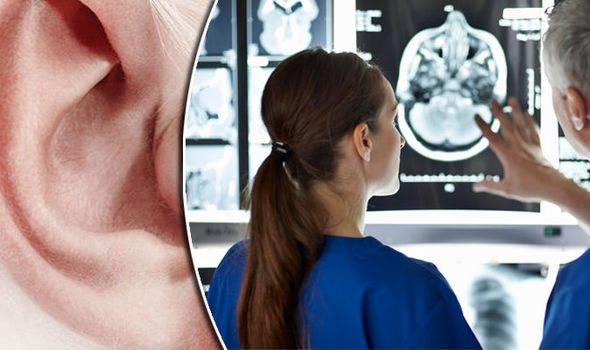
Tinnitus often gives way to congestion, which greatly reduces the perception of external sounds. The occurrence of discomfort in various pathologies leads to:
- headache;
- dizziness;
- pain inside the ear;
- hyperemia of the auditory organ;
- discharge from the ear;
- chills;
- general fatigue.
If the root cause of noise phenomena is not eliminated, it leads to hearing loss. Therefore, timely treatment is so important to eliminate discomfort.
Rare causes of dizziness. Life-threatening conditions.
Dizziness, noise in the ears and head can be the result of some relatively rare diseases, many of which are dangerous. In all these cases, it is necessary to consult a doctor as soon as possible: Acute purulent otitis (ear inflammation, often accompanied by ear congestion, headache, fever); Stroke (develops acutely, possible disturbances in speech, swallowing, vision, sensitivity, balance, weakness in the arm and/or leg); Cerebral hemorrhage, traumatic or spontaneous (develops acutely, usually accompanied by severe headache, possible disturbances in speech, swallowing, vision, sensitivity, balance, weakness in the arm and/or leg); Meningitis and other inflammatory diseases of the brain (usually accompanied by severe headache, fever, photophobia, nausea, vomiting); Multiple sclerosis (develops gradually, possible disturbances in speech, swallowing, vision, sensitivity, balance, weakness and/or stiffness in one or more limbs); Brain tumor (develops gradually, characteristic symptoms are headache, nausea and vomiting in the morning, possible disturbances in speech, swallowing, vision, sensitivity, balance, weakness and/or stiffness in one or more limbs).
Other related articles:
Diagnosis and treatment of migraine.
Diagnostics
To eliminate congestion in the right ear and noise, you need to identify the causes that lead to discomfort. This is revealed using:
- otoscopy;
- audiometry;
- vestibulometry;
- Valsava samples;
- angiography;
- Dopplerography;
- Ultrasound of cerebral vessels;
- X-ray of the cervical spine;
- CT and MRI.
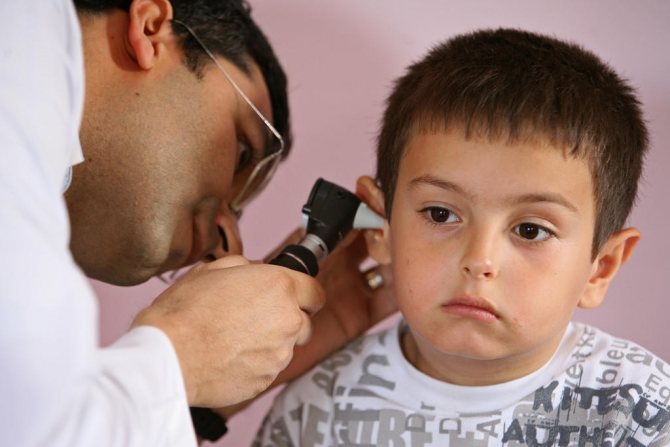
It is imperative to perform a laboratory blood test to detect inflammation or infection. Antibacterial sensitivity testing is also required. A comprehensive examination consists of consulting an otolaryngologist, therapist, ophthalmologist, cardiologist, neurologist, neurosurgeon.
How to help yourself?
Diagnosing this disease is complicated, so self-medication is not allowed. You can greatly harm your health. If the disease manifests itself in the form of hearing impairment, it is important to follow the doctor’s advice. Typically, experts recommend adhering to the following rules:
- It is important to monitor your blood pressure and measure it regularly.
- You should not visit places with strong noise.
- Consume less salt to prevent this condition.
- Healthy hearing requires relaxation and relaxation.
- Do not smoke, drink coffee, tea, or Coca-Cola. These products lead to tinnitus.
- Sports and a healthy lifestyle are excellent prevention.
- A hearing aid helps with hearing loss. If your doctor has prescribed its use, do not disregard the recommendation.
- You can use tinnitus maskers. These are devices similar to hearing aids, but they mask noise.
- Tinnitus maskers with hearing aid function enhance the therapeutic effect.
Removing wax plug
Sometimes the cause of tinnitus is the presence of wax. Then it will be enough to remove it. To dissolve the cork, you can buy special products or make effective compositions at home. Any method will bring positive results.
At home, you need to instill 2 drops of hydrogen peroxide into each ear, and after 10 minutes, remove the remaining wax with salt water drawn into a syringe. You can replace hydrogen peroxide with a soda solution - ¼ tbsp. l. add 0.25 tsp of water. soda
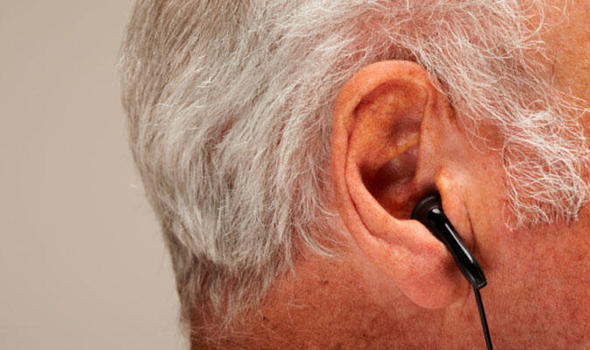
If you are afraid to remove the traffic jam yourself, you can visit an ENT specialist. The doctor will rinse the ear canal in a few minutes, after which the noise will be eliminated. Knowing ways to relieve discomfort will improve your quality of life and prevent complications.
Treatment
If there is noise in the right ear, how to treat it? First, the cause is determined. Without identifying the disease or conditions that led to discomfort, it will not be possible to cure such manifestations. An integrated approach consists of using medications that relieve anxiety, restore the condition of organs, and eliminate inflammation.
Pulsatile noise in the right ear or another type of noise is treated with different remedies based on the main ailment. Doctors usually prescribe:
- Antibiotics. Their use is associated with inflammation or infection that is localized in the ear. Antihistamines are also used to relieve swelling and reduce exudative discharge from the ear. Effective ones include Fenkarol, Hydroxyzine, Promethazine.
- Cerebral circulation stimulants. They are prescribed to normalize blood flow. The best products are Betagistin, Cinnarizine, and Cavinton.
- Nootropic medications. Their use will help achieve positive dynamics in combating noise manifestations. Mexidol, Cortexin, and Phezam are usually prescribed.
- Vitamin complexes. They strengthen vascular walls and restore nerve endings.
You should not choose medications on your own; this can lead to side effects, lack of effect and complications. These medications can only be taken if prescribed by a doctor. Whatever drug is prescribed, the dosage and duration of treatment must be observed.
Noise in the right ear without pain: possible causes and treatments
Discomfort in the ears causes a lot of unpleasant sensations. It can occur in both adults and children. Noise in the right ear without pain is not considered an independent ailment; it is a symptom that manifests itself in various pathologies. In medicine, this manifestation is called tinnitus. The causes of noise in the right ear and treatment are described in the article.
It is important to consider that this symptom occurs in many people. It can be in both the right and left ear, and sometimes in both. Should I worry about this discomfort? The answer to the question is presented below.
general information
Intermittent noise in the right ear worries many people. For doctors, this is also not an entirely simple problem. After all, it is important to accurately establish the cause.
Noise in the right ear without pain is usually associated with natural processes; it occurs from irritation of the hairs that are localized inside. In a calm state, they do not manifest themselves in any way, but with irritation they move chaotically, which leads to noise.
Noise that appears in absolute silence is physiological. It is usually caught due to the movement of blood through the small vessels of the inner ear. It is not possible to determine the nature of these noises based on symptoms alone. Physiological noise usually occurs in people over 40 years of age.
Noise in the right ear without pain appears not only due to the condition of the hearing aid. Another symptom appears when:
- acute otitis;
- unstable blood pressure;
- vegetative-vascular dystonia;
- osteochondrosis of the cervical spine;
- vascular atherosclerosis;
- hearing loss;
- Meniere's disease;
- consequences of traumatic brain injury;
- intoxication;
- oncology.
Diseases of the hearing aid rarely cause noise or ringing in the ear. To prescribe effective treatment, the doctor must determine the cause.
Who should I contact?
Only consulting a doctor will help determine the cause. First you should visit an ENT (otolaryngologist) or therapist. Each case is individual. The doctor will prescribe the necessary tests and refer you for consultation to the required specialists.
Diagnostics
To eliminate congestion in the right ear and noise, you need to identify the causes that lead to discomfort. This is revealed using:
- otoscopy;
- audiometry;
- vestibulometry;
- Valsava samples;
- angiography;
- Dopplerography;
- Ultrasound of cerebral vessels;
- X-ray of the cervical spine;
- CT and MRI.
It is imperative to perform a laboratory blood test to detect inflammation or infection. Antibacterial sensitivity testing is also required. A comprehensive examination consists of consulting an otolaryngologist, therapist, ophthalmologist, cardiologist, neurologist, neurosurgeon.
Removing wax plug
Sometimes the cause of tinnitus is the presence of wax. Then it will be enough to remove it. To dissolve the cork, you can buy special products or make effective compositions at home. Any method will bring positive results.
At home, you need to instill 2 drops of hydrogen peroxide into each ear, and after 10 minutes, remove the remaining wax with salt water drawn into a syringe. You can replace hydrogen peroxide with a soda solution - ¼ tbsp. l. add 0.25 tsp of water. soda
If you are afraid to remove the traffic jam yourself, you can visit an ENT specialist. The doctor will rinse the ear canal in a few minutes, after which the noise will be eliminated. Knowing ways to relieve discomfort will improve your quality of life and prevent complications.
If there is noise in the right ear, how to treat it? First, the cause is determined. Without identifying the disease or conditions that led to discomfort, it will not be possible to cure such manifestations. An integrated approach consists of using medications that relieve anxiety, restore the condition of organs, and eliminate inflammation.
Pulsatile noise in the right ear or another type of noise is treated with different remedies based on the main ailment. Doctors usually prescribe:
- Antibiotics. Their use is associated with inflammation or infection that is localized in the ear. Antihistamines are also used to relieve swelling and reduce exudative discharge from the ear. Effective ones include Fenkarol, Hydroxyzine, Promethazine.
- Cerebral circulation stimulants. They are prescribed to normalize blood flow. The best products are Betagistin, Cinnarizine, and Cavinton.
- Nootropic medications. Their use will help achieve positive dynamics in combating noise manifestations. Mexidol, Cortexin, and Phezam are usually prescribed.
- Vitamin complexes. They strengthen vascular walls and restore nerve endings.
You should not choose medications on your own; this can lead to side effects, lack of effect and complications. These medications can only be taken if prescribed by a doctor. Whatever drug is prescribed, the dosage and duration of treatment must be observed.
Other methods
If there is noise in the right ear, what should I do? In addition to the use of medications, a course of physiotherapeutic procedures is required to eliminate discomfort. This treatment involves performing:
- pneumomassage;
- electrotherapy;
- laser therapy;
- acupressure;
- acupuncture.
There is no specific therapy aimed at eliminating noise. Comprehensive treatment is required, which takes into account all aspects of the condition and accompanying symptoms and gives favorable results. The disease that led to this symptom is eliminated, and then the discomfort itself disappears.
Other methods
If there is noise in the right ear, what should I do? In addition to the use of medications, a course of physiotherapeutic procedures is required to eliminate discomfort. This treatment involves performing:
- pneumomassage;
- electrotherapy;
- laser therapy;
- acupressure;
- acupuncture.
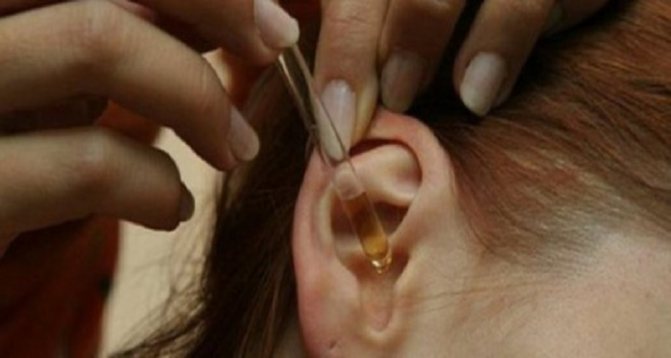
There is no specific therapy aimed at eliminating noise. Comprehensive treatment is required, which takes into account all aspects of the condition and accompanying symptoms and gives favorable results. The disease that led to this symptom is eliminated, and then the discomfort itself disappears.
ethnoscience
Traditional medicine should be used only as ancillary procedures to the main therapy. There are several recipes that can be easily prepared at home:
- Peppermint infusion. You will need dried leaves (1 tbsp), which are poured with boiling water (200 ml). Infusion is carried out for 5 minutes, after which straining is required. This portion is drunk in 2 doses - morning and evening.
- Medicinal composition based on cornflower, lilac and thyme flowers. All components take 1 tbsp. l., and then pour boiled water (300 ml). The mixture should be simmered over low heat for 3 minutes. Then it is cooled, filtered, and taken 20 ml 3 times a day.
- Tincture of red clover flowers. Raw materials (2 tbsp.) are poured with vodka (50 ml), kept in a dark place for 5 days. You should drink 1 tsp. before eating.
It must be taken into account that it is impossible to cure noise only with folk remedies. They can only serve as an addition to the main therapy; the use of such methods is important to coordinate with your doctor.
Noise in one ear: causes and treatment
Intermittent noise in the right ear worries many people. For doctors, this is also not an entirely simple problem. After all, it is important to accurately establish the cause.
Noise in the right ear without pain is usually associated with natural processes; it occurs from irritation of the hairs that are localized inside. In a calm state, they do not manifest themselves in any way, but with irritation they move chaotically, which leads to noise.
Noise that appears in absolute silence is physiological. It is usually caught due to the movement of blood through the small vessels of the inner ear. It is not possible to determine the nature of these noises based on symptoms alone. Physiological noise usually occurs in people over 40 years of age.
Pathologies
Noise in the right ear without pain appears not only due to the condition of the hearing aid. Another symptom appears when:
- acute otitis;
- unstable blood pressure;
- vegetative-vascular dystonia;
- osteochondrosis of the cervical spine;
- vascular atherosclerosis;
- hearing loss;
- Meniere's disease;
- consequences of traumatic brain injury;
- intoxication;
- oncology.
Diseases of the hearing aid rarely cause noise or ringing in the ear. To prescribe effective treatment, the doctor must determine the cause.
Why does it happen?
The causes of noise in the right ear may be related to:
- Right-sided otitis. The accumulation of secretions in the middle ear puts pressure on the septum, which manifests itself in the form of noise.
- Acute tubo-otitis. The manifestation of this disease is not only inflammation of the eardrum, but also inflammation of the mucous membrane of the Eustachian tube. In addition to noise, severe pain occurs, which is accompanied by congestion.
- Meniere's disease. The symptoms and treatment of this disease are interrelated. Due to the accumulation of fluid in the inner ear, compression of the arteries and poor circulation occurs. Dizziness appears and there is a risk of hearing loss. Depending on the symptoms of Meniere's disease, treatment should be appropriate.
- Intoxication caused by uncontrolled use of antibiotics. There is noise in the right ear without pain.
- Tachycardia and other cardiovascular diseases that lead to discomfort in the ears.
- Benign or malignant formations that lead to the appearance of these sound effects.
- Pathologies in the nervous system, which leads to discomfort in the form of noises of various types.
In addition to pathologies, hearing loss and noise in the right ear can occur from wax plugs in the ear canal, penetration of a foreign object, or head trauma. Fatigue and nervous feelings, drinking large quantities of alcohol, strong tea and coffee, and energy drinks can also lead to the appearance of different sounds in the ear.
Associated symptoms
A noise in the right ear, like wind, may occur with other symptoms. Usually people experience fear and anxiety from an incomprehensible symptom. This often leads to:
- sleep disturbance;
- fatigue;
- decreased performance;
- attention disorders;
- depression.
Tinnitus often gives way to congestion, which greatly reduces the perception of external sounds. The occurrence of discomfort in various pathologies leads to:
- headache;
- dizziness;
- pain inside the ear;
- hyperemia of the auditory organ;
- discharge from the ear;
- chills;
- general fatigue.
If the root cause of noise phenomena is not eliminated, it leads to hearing loss. Therefore, timely treatment is so important to eliminate discomfort.
Most often, tinnitus manifests itself as humming, ringing, whistling, and rhythmic clicking. Unpleasant sensations can be continuous, periodic or pulsating (pulsating in rhythm with the heart). The latter may indicate that some artery is blocked or an aneurysm is developing.
What to do with very strong tinnitus?
Most patients come to the clinic for restorative neurology when tinnitus begins to significantly ruin their life: it prevents them from concentrating on work, distracts them from everyday activities, interferes with sleep, and is simply tormenting them. It is difficult to call such appeals timely.
We strongly recommend to absolutely everyone not to wait for the moment when the quality of life begins to deteriorate due to such symptoms. The right thing to do is to call and make an appointment at the first episode of symptoms.
How to help yourself?
Diagnosing this disease is complicated, so self-medication is not allowed. You can greatly harm your health. If the disease manifests itself in the form of hearing impairment, it is important to follow the doctor’s advice. Typically, experts recommend adhering to the following rules:
- It is important to monitor your blood pressure and measure it regularly.
- You should not visit places with strong noise.
- Consume less salt to prevent this condition.
- Healthy hearing requires relaxation and relaxation.
- Do not smoke, drink coffee, tea, or Coca-Cola. These products lead to tinnitus.
- Sports and a healthy lifestyle are excellent prevention.
- A hearing aid helps with hearing loss. If your doctor has prescribed its use, do not disregard the recommendation.
- You can use tinnitus maskers. These are devices similar to hearing aids, but they mask noise.
- Tinnitus maskers with hearing aid function enhance the therapeutic effect.
These recommendations are usually given by doctors to restore well-being and eliminate discomfort in the ears. You should adhere to them, use the remedies prescribed for treatment, and then the problem will quickly be eliminated.
ethnoscience
It is important to understand that tinnitus in any manifestation is just a symptom of a particular pathology. The problem may lie anywhere in the auditory analyzer, and if it is not found, then you should not count on the effect of treatment.
Traditional medicine should be used only as ancillary procedures to the main therapy. There are several recipes that can be easily prepared at home:
- Peppermint infusion. You will need dried leaves (1 tbsp), which are poured with boiling water (200 ml). Infusion is carried out for 5 minutes, after which straining is required. This portion is drunk in 2 doses - morning and evening.
- Medicinal composition based on cornflower, lilac and thyme flowers. All components take 1 tbsp. l., and then pour boiled water (300 ml). The mixture should be simmered over low heat for 3 minutes. Then it is cooled, filtered, and taken 20 ml 3 times a day.
- Tincture of red clover flowers. Raw materials (2 tbsp.) are poured with vodka (50 ml), kept in a dark place for 5 days. You should drink 1 tsp. before eating.
It must be taken into account that it is impossible to cure noise only with folk remedies. They can only serve as an addition to the main therapy; the use of such methods is important to coordinate with your doctor.
Sulfur plug
The occurrence of a traffic jam is explained by various reasons. The key role, as a rule, is played by an increase in the secretory activity of the glands located in the external auditory canal.
The consistency of the sulfur produced and the presence of skin damage are also important.
The intensity of secretion depends on many factors - including taking medications, wearing a hearing aid, and frequent use of headphones (especially “vacuum” and “in-ear”).
The presence of wax plug cannot be called a life-threatening condition. In general, many patients may not notice it until water gets into the ear. This happens because:
- the plug does not always completely block the ear canal;
- water entering the ear closes the remaining free lumen of the ear canal;
- When the plug comes into contact with water, it swells and clogs the ear canal.
Traffic jams on both sides are rare, so if you suddenly have noise in your ears, you should think not only about this reason for the “background sound”. However, when the noise is one-sided - for example, buzzing in the right ear, and immediately before the onset of the symptom, liquid entered the ear canal - there is a high probability of detecting an accumulation of earwax.
In the presence of a traffic jam, not only a subjective sound occurs, but also autophony.
Sometimes the cause of tinnitus is the presence of wax. Then it will be enough to remove it. To dissolve the cork, you can buy special products or make effective compositions at home. Any method will bring positive results.
At home, you need to instill 2 drops of hydrogen peroxide into each ear, and after 10 minutes, remove the remaining wax with salt water drawn into a syringe. You can replace hydrogen peroxide with a soda solution - ¼ tbsp. l. add 0.25 tsp of water. soda
If you are afraid to remove the traffic jam yourself, you can visit an ENT specialist. The doctor will rinse the ear canal in a few minutes, after which the noise will be eliminated. Knowing ways to relieve discomfort will improve your quality of life and prevent complications.
Treatment methods
Treatment with medications is a course of using various drugs. Among them are vascular, metabolic, psychotropic, antihistamine, etc.
The use of psychotropic drugs is allowed extremely rarely and only after permission from a neuropsychiatrist.
Various types of antidepressants, in addition to facilitating noise tolerance, can also provoke a number of side effects (drowsiness, problems with stool, addiction, etc.).
Drugs targeting anticonvulsant symptoms are prescribed only when the noise is caused by clinical contraction of the muscles of the soft middle ear or soft palate.
If there is noise in the right ear, what should I do? In addition to the use of medications, a course of physiotherapeutic procedures is required to eliminate discomfort. This treatment involves performing:
- pneumomassage;
- electrotherapy;
- laser therapy;
- acupressure;
- acupuncture.
There is no specific therapy aimed at eliminating noise. Comprehensive treatment is required, which takes into account all aspects of the condition and accompanying symptoms and gives favorable results. The disease that led to this symptom is eliminated, and then the discomfort itself disappears.
Prevention
To prevent tinnitus, you need to follow preventive measures. Experts advise:
- Control the volume of music when listening to it on headphones. They should not be used on the subway or on airplanes.
- When working in noisy workplaces, you should use earplugs.
- It is important to reduce your caffeine and alcohol intake.
- Stress must be eliminated.
- Injury to the head and hearing aid should be avoided.
- During the cold season, hats are worn.
You should consult a doctor if the noise appears constantly and is also accompanied by other symptoms. With the help of timely diagnosis, it will be possible to prevent dangerous consequences.
General recommendations
These are important tips on which the effect of treatment depends. They will speed up recovery. It is important to analyze your lifestyle and think about what needs to be improved:
- Nutrition. It must be complete and healthy. You should not eat late in the evening; you should eat only natural foods.
- Movement. Daily physical activity in the fresh air is necessary. The norm is 10,000 steps per day, which is required for good health.
- Exercises. You can play sports in the gym, dance, or choose another healthy type of physical activity. And then you will feel cheerful throughout the day.
- Hardening. You can choose any suitable type. This could be walking on the grass with bare feet, swimming in a river, a contrast shower, dousing your feet and body.
- You need to take vitamin complexes regularly. These can be dietary supplements, superfoods - spirulina, chlorella, flax seeds. All this perfectly strengthens the immune system.
These recommendations will help you quickly improve your well-being by getting rid of unpleasant ear discomfort.
Complications
If the patient is not given timely assistance or the characteristic signs of the disease are ignored, this can lead to serious consequences. This not only leads to discomfort, but also negatively affects well-being and poses a threat to health.
Noises in the ear can lead to absent-mindedness, anxiety, and causeless irritability. All this can lead to deep apathy and depression; in this state, patients do negative things that they later regret.
Noise in the right ear also causes absolute hearing loss, which leads to disability. If, in addition to noise, there is an infection, it can spread to parts of the brain and neighboring organs. The consequences can be extremely severe.
You can get rid of noise in your right ear by visiting a doctor in a timely manner. In most cases, favorable dynamics are observed in a short time if the patient complies with the specialist’s instructions. Self-medication can prolong the course of the disease and lead to serious complications, including complete deafness.
Source: https://komp-off.ru/odnom-prichiny-lechenie/
Prevention
To prevent tinnitus, you need to follow preventive measures. Experts advise:
- Control the volume of music when listening to it on headphones. They should not be used on the subway or on airplanes.
- When working in noisy workplaces, you should use earplugs.
- It is important to reduce your caffeine and alcohol intake.
- Stress must be eliminated.
- Injury to the head and hearing aid should be avoided.
- During the cold season, hats are worn.

You should consult a doctor if the noise appears constantly and is also accompanied by other symptoms. With the help of timely diagnosis, it will be possible to prevent dangerous consequences.
Heart disease, arrhythmia - dizziness, noise in the head and ears.
Some heart diseases and defects can make the heart so unproductive that it can no longer cope with pumping blood. Blood circulation slows down. As a result, the organs and tissues of the body do not receive enough vital substances, primarily oxygen, and cannot completely get rid of the products of their vital activity. This condition is called circulatory failure. The brain is especially sensitive to insufficiency of general blood circulation, and symptoms such as dizziness and noise in the ears (head) are one of the common manifestations of this condition.
Leading symptoms:
- Dizziness and/or noise in the head, in the ears, constant or episodic, often associated with physical activity;
- Other signs of general circulatory failure are fatigue, weakness, shortness of breath, swelling, palpitations, pallor, cold hands and feet, marbling of the skin;
Treatment.
Treatment consists of restoring sufficient general circulation. The scope of treatment and its prognosis depend on the type and severity of heart disease, so we pay great attention to a full examination of the patient. Electrocardiographic studies may be prescribed, including stress tests, ultrasound examination of the heart, blood tests, etc. In severe cases, we recommend examination and treatment in specialized cardiology and cardiac surgery centers.
General recommendations
These are important tips on which the effect of treatment depends. They will speed up recovery. It is important to analyze your lifestyle and think about what needs to be improved:
- Nutrition. It must be complete and healthy. You should not eat late in the evening; you should eat only natural foods.
- Movement. Daily physical activity in the fresh air is necessary. The norm is 10,000 steps per day, which is required for good health.
- Exercises. You can play sports in the gym, dance, or choose another healthy type of physical activity. And then you will feel cheerful throughout the day.
- Hardening. You can choose any suitable type. This could be walking on the grass with bare feet, swimming in a river, a contrast shower, dousing your feet and body.
- You need to take vitamin complexes regularly. These can be dietary supplements, superfoods - spirulina, chlorella, flax seeds. All this perfectly strengthens the immune system.
Complications
If the patient is not given timely assistance or the characteristic signs of the disease are ignored, this can lead to serious consequences. This not only leads to discomfort, but also negatively affects well-being and poses a threat to health.
Noises in the ear can lead to absent-mindedness, anxiety, and causeless irritability. All this can lead to deep apathy and depression; in this state, patients do negative things that they later regret.
Noise in the right ear also causes absolute hearing loss, which leads to disability. If, in addition to noise, there is an infection, it can spread to parts of the brain and neighboring organs. The consequences can be extremely severe.
You can get rid of noise in your right ear by visiting a doctor in a timely manner. In most cases, favorable dynamics are observed in a short time if the patient complies with the specialist’s instructions. Self-medication can prolong the course of the disease and lead to serious complications, including complete deafness.
Pulsating noise in the ear (left and right): causes, treatment, diagnosis, prevention
Symptoms of diseases do not always bring discomfort enough to become a reason to contact a specialist. One of these is pulsatile tinnitus.
A mild feeling of discomfort does not cause pain, but affects the quality of life.
Sometimes pulsation in the organ of hearing becomes the cause of insomnia and neurosis, but a person begins to find out the original source of the unpleasant phenomenon only when it becomes too difficult to endure.
Character
The conversion of sound vibrations into nerve impulses occurs due to special cells localized in the inner ear. In turn, they contain hairs, which, in a healthy ear, move in time with sound waves.
Nerve impulses are analyzed and recognized in the corresponding center of the brain, due to which a person hears music, noise, speech, etc.
The chaotic movement of the hairs of the auditory cells, which is disrupted under the influence of certain factors, leads to the fact that the formed impulses are perceived by the central nervous system as pathological noise.
https://www.youtube.com/watch?v=tEwInFs7xaI
As a result, a person hears crackling, buzzing, ringing, which is often accompanied by dizziness. Against the background of pulsating noise in the ears, hearing loss is often observed. The phenomenon may be temporary or paroxysmal in nature.
Pulsating tinnitus often becomes a source of depression, severe neurotic conditions, insomnia and impaired concentration.
